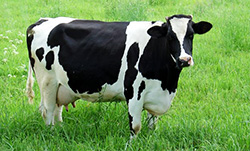YIPPEE!! FULL FAT DAIRY IS ACTUALLY HEALTHIER !!
 Just in time for Christmas pudding with double cream, stilton, gorgonzola and butter on everything is the wonderful news that full fat dairy is actually much better for us (than low-fat)!
Just in time for Christmas pudding with double cream, stilton, gorgonzola and butter on everything is the wonderful news that full fat dairy is actually much better for us (than low-fat)!
Flying in the face of decades of media misinformation telling us that full fat dairy products are unhealthy, fattening and to be avoided at all costs, is in-depth research linking the consumption of full fat dairy to a slimmer body, protection against diabetes, better cholesterol levels, improved digestion and a longer, healthier life (compared to low-fat or fat-free dairy produce).
Organic, grass-fed, raw, (non pasteurised) full fat milk is the gold standard due to its higher Vitamin C and mineral levels, Omega 3 content, wonderful taste and ease of digestion, however even if pasturized, full fat dairy appears to be much, much healthier for us than low-fat versions!
The following fascinating data (inspired by chriskresser.com) gives real food for thought:
A meta-analysis of 16 studies found that full-fat dairy was either inversely associated with obesity and metabolic disease, or not associated with them at all. In other words, people who ate the most high-fat dairy foods had the lowest risk for obesity, diabetes, and cardiovascular disease. (1)
• Higher circulating levels of trans-palmitoleic acid (a fatty acid found in dairy fat) are associated with healthier levels of blood cholesterol, inflammatory markers, insulin levels, and insulin sensitivity, after adjustment for other risk factors. In one study, people with the highest levels of trans-palmitoleic acid in their blood had a 60% lower risk of developing diabetes than those with the lowest levels. (2)
• Another study showed that people who ate the most full-fat dairy had a 69% lower risk of cardiovascular death than those who ate the least. (3)`
• A study at the Harvard School of Public Health found that women who ate two or more servings of low-fat dairy foods per day, particularly skim milk and yogurt, increased their risk of infertility by more than 85 percent compared with women who ate less than one serving of low-fat dairy food per week. (4)
• It bears mentioning that all of these studies were observational in nature, so they don’t prove that full-fat dairy is responsible for all of the effects mentioned. But they certainly make it difficult to argue that full-fat dairy is harmful and contributes to obesity, diabetes and heart disease, and if anything, they suggest the opposite is true.
• How full-fat (but not non-fat) dairy may prevent disease
How could that be? Well, it turns out that some compounds in high-fat dairy products—such as butyrate, phytanic acid, trans palmitoleic acid, and conjugated linoleic acid—have been shown to have beneficial effects.
Butyrate provides energy to the cells lining the colon, inhibits inflammation in the gastrointestinal tract, and may prevent colonic bacteria from entering the bloodstream. In fact, butyrate’s anti-inflammatory effect is so strong that a dose of four grams per day for eight weeks induced complete remission in a group of Crohn’s disease patients.
Phytanic acid, one of the fatty acids in dairy fat, has been shown to reduce triglycerides, improve insulin sensitivity, and improve blood-sugar regulation in animal models. In a study of 2,600 U.S. adults, another fatty acid in dairy fat, trans palmitoleic acid, was found to be associated with lower triglycerides, lower fasting insulin, lower blood pressure, and a lower risk of diabetes.
Conjugated linolenic acid (CLA), a natural trans fat found in dairy products, may reduce the risk of heart disease, cancer, and diabetes.
Finally, dairy fat is also a good source of fat-soluble vitamins like retinol (active vitamin A) and vitamin K2, which are difficult to obtain elsewhere in the diet.
Should we be consuming dairy products at all?
There’s no question that dairy doesn’t work for everyone. Some people are allergic to or intolerant of the proteins in dairy, or are highly sensitive for lactose. In those cases dairy must be strictly avoided or additional steps must be taken (such as fermenting milk to make kefir or yogurt, which are lower in lactose) to make it tolerable.
But for people who tolerate dairy, there’s really no reason to choose low-fat or non-fat varieties—in fact, by doing so you may be limiting or even eliminating the benefits you would get from consuming dairy products in the first place!
Not only that, I think most people will agree that full-fat dairy tastes so much better. Hooray!
http://chriskresser.com/still-think-low-fat-dairy-is-the-healthy-choice-think-again
